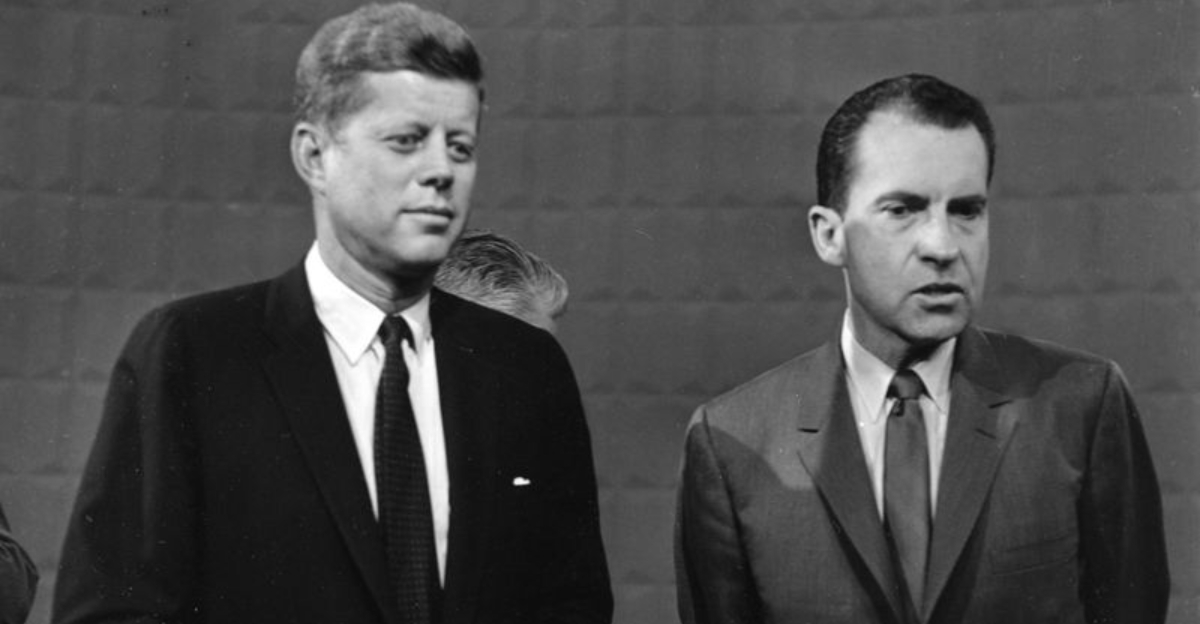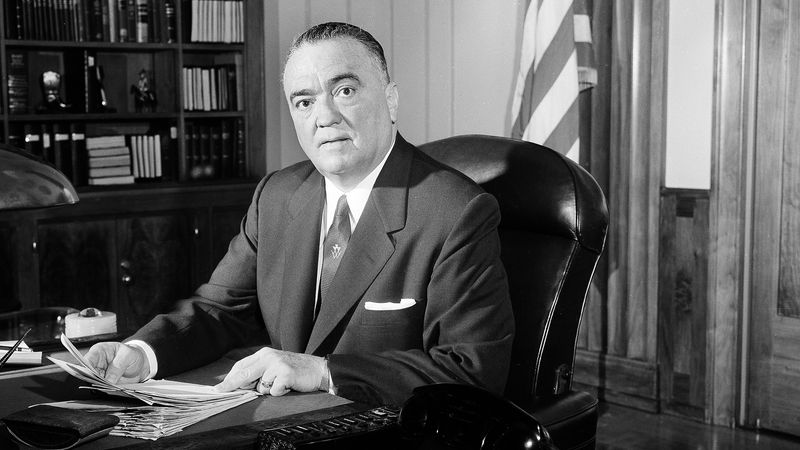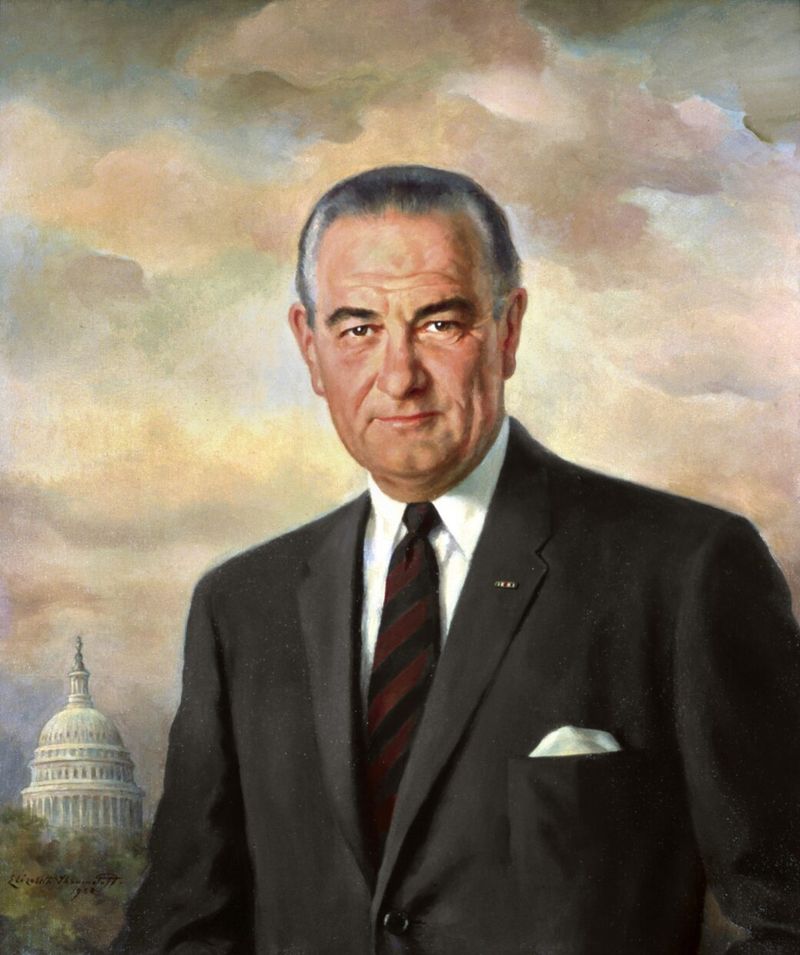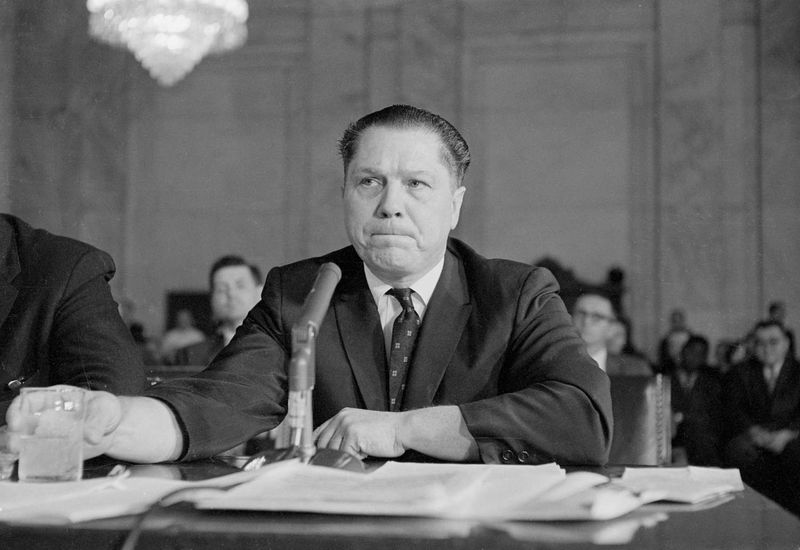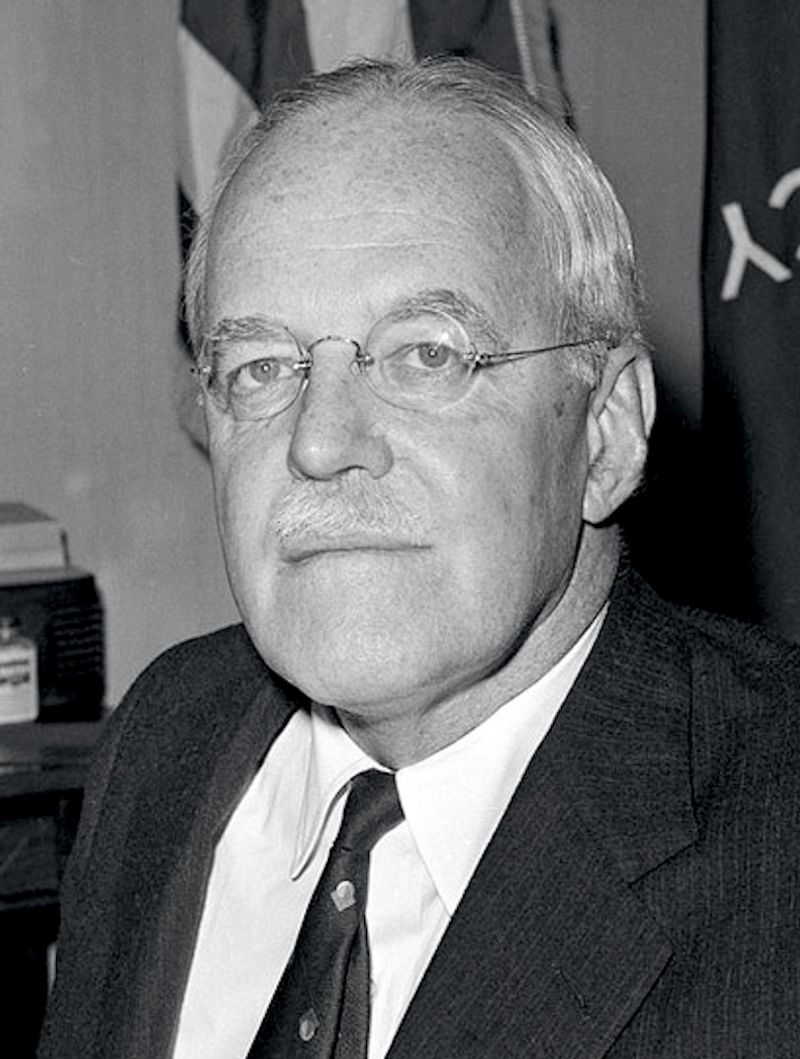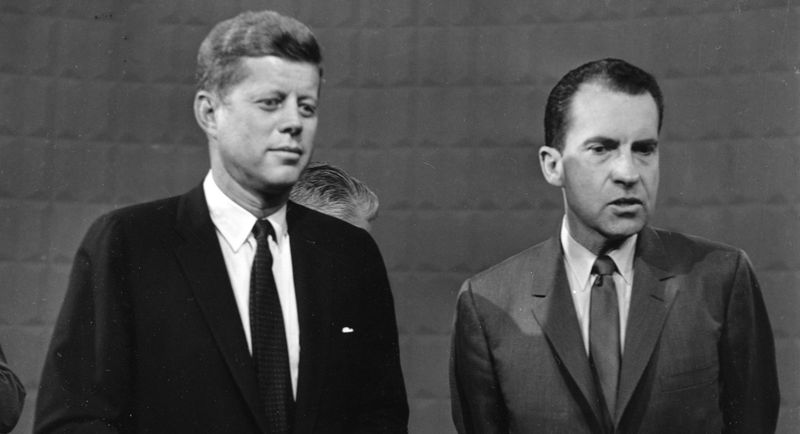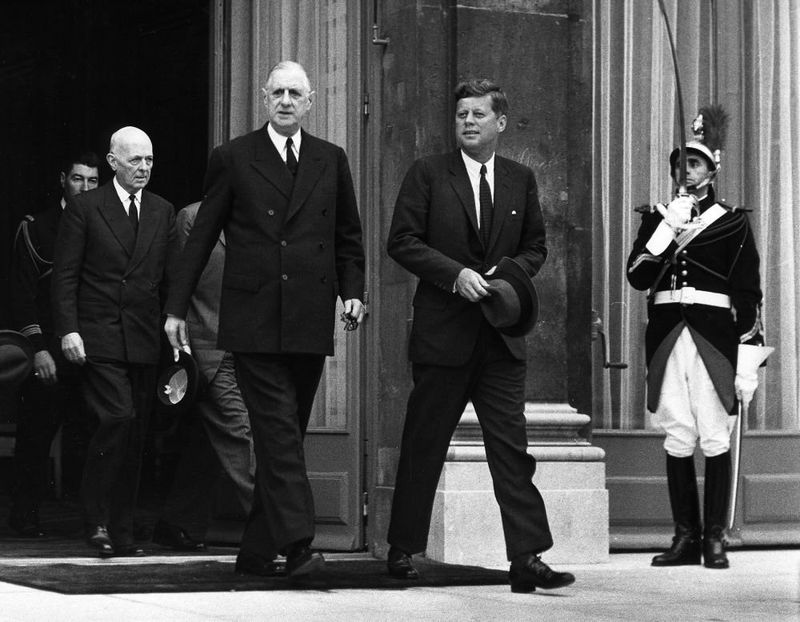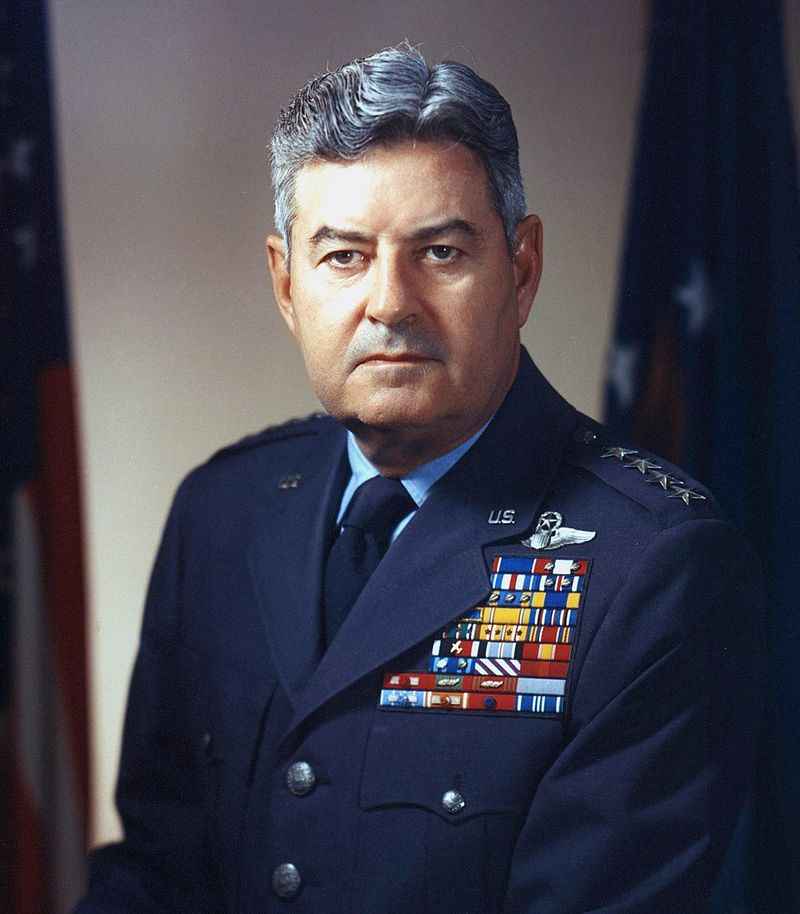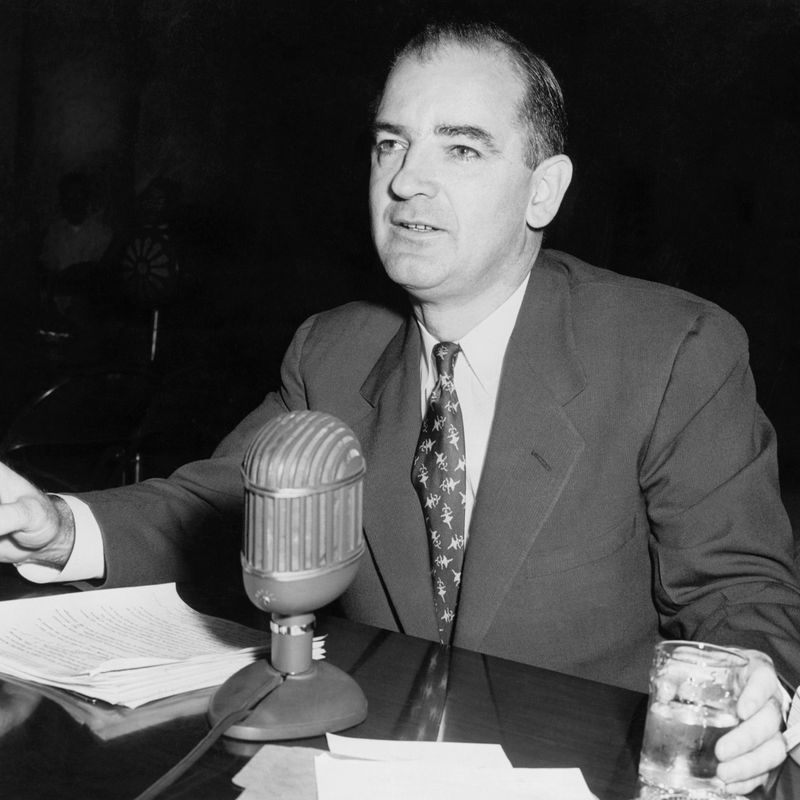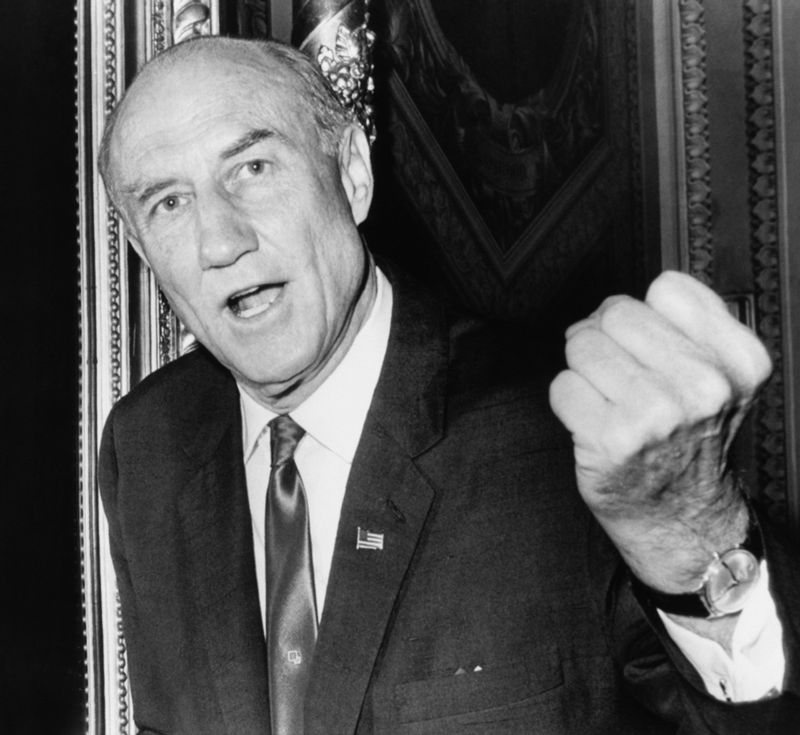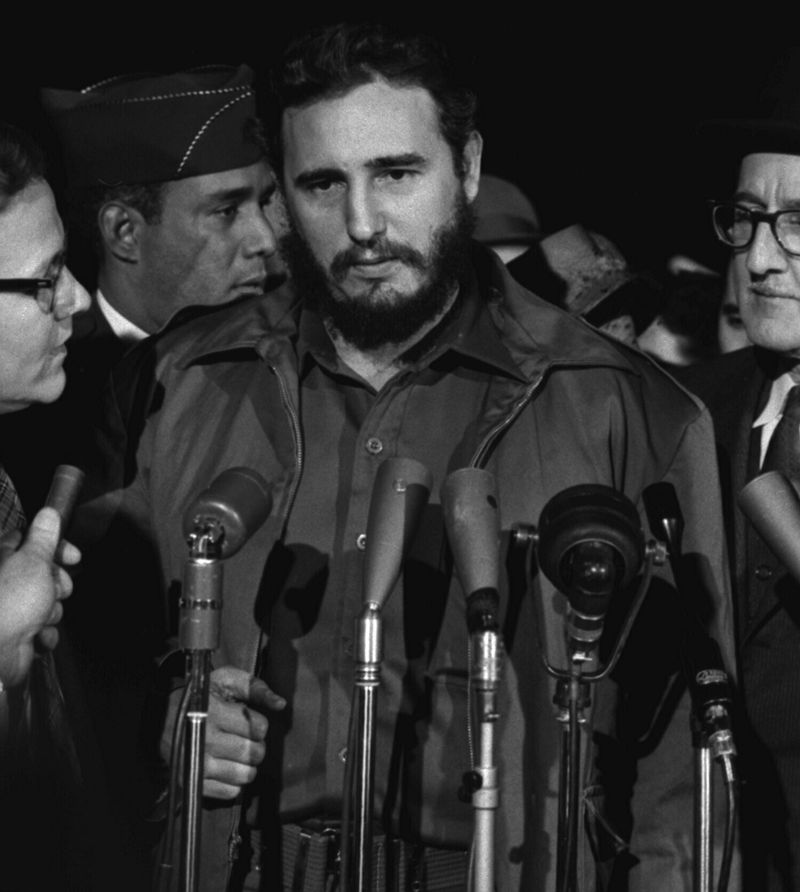John F. Kennedy, a charismatic leader adored by many, had his share of critics. Behind the scenes, several prominent figures harbored feelings of resentment and hostility towards him.
Whether due to political rivalry, personal grudges, or ideological differences, these individuals found themselves at odds with JFK’s policies and persona.
This post delves into ten well-known people who secretly loathed the 35th President of the United States, unraveling the complex web of relationships and rivalries.
1. J. Edgar Hoover
J. Edgar Hoover, the powerful head of the FBI, harbored distrust towards JFK, especially due to his brother Robert F. Kennedy. Hoover despised the liberal stance of the Kennedys and perceived them as weak on Communism. His arsenal of blackmail material on JFK’s private life added tension to their relationship. Hoover’s ability to manipulate and control through information was a defining feature of his tenure, and his disdain for the Kennedy administration was palpable.
2. Lyndon B. Johnson
Lyndon B. Johnson, JFK’s Vice President, often felt isolated from the Kennedy circle. Seen more as a political necessity than a partner, Johnson’s relationship with JFK was strained. He reportedly felt disrespected and sidelined, leading to a cold rapport. After JFK’s assassination, Johnson’s comment on Kennedy’s focus on appearances over substance spoke volumes about their rivalry. The icy demeanor between them was known among political insiders, adding complexity to their partnership.
3. Jimmy Hoffa
Jimmy Hoffa, the influential Teamsters leader, had a notorious feud with the Kennedys, especially Robert, extending that animosity to JFK. The Kennedy administration’s aggressive pursuit of corruption charges against Hoffa fueled his hatred. Hoffa’s threats against the Kennedy brothers were rumored, heightening tensions. Alleged connections to anti-Kennedy plots added a layer of intrigue to their conflict. His defiance against the administration was emblematic of his larger-than-life persona and his relentless pursuit of power.
4. Allen Dulles
Allen Dulles, former CIA Director, was dismissed by JFK after the Bay of Pigs fiasco. Dulles resented being scapegoated by Kennedy, leading to lingering animosity. Ironically, his appointment to the Warren Commission investigating JFK’s assassination sparked controversy. Dulles’s influence in the intelligence community was significant, and his dismissal highlighted the friction between him and JFK. Their strained relationship was emblematic of broader tensions within the administration and intelligence apparatus.
5. Richard Nixon
Richard Nixon’s rivalry with JFK began with the narrow loss in the 1960 presidential election. Nixon felt overshadowed by Kennedy’s charm, and the media’s fascination with the Kennedys added fuel to his frustration. Allegations of vote manipulation and Chicago voter fraud intensified his bitterness. Some described his resentment as deep-seated, with media manipulation being a focal point of his animosity. Nixon’s political aspirations were thwarted by JFK’s victory, leaving a lasting impact on their relationship.
6. Charles de Gaulle
Charles de Gaulle, the towering French President, viewed JFK as inexperienced and overly focused on American interests. Their diplomatic tensions were evident during discussions on NATO and nuclear policies. De Gaulle’s mocking of JFK’s style and perceived lack of diplomatic finesse added a personal edge to their differences. Despite shared interests, their relationship was marred by mutual skepticism. De Gaulle’s firm stance on French sovereignty often clashed with Kennedy’s approach, creating diplomatic friction.
7. General Curtis LeMay
General Curtis LeMay, the Air Force Chief of Staff, was at odds with JFK over military strategies, particularly during the Cuban Missile Crisis. LeMay criticized Kennedy’s cautious approach to nuclear tensions with the Soviets. His open disdain for Kennedy’s leadership style was well-known within military circles. LeMay’s aggressive posture contrasted sharply with Kennedy’s restrained policies, creating deep-seated animosity. His military career was characterized by boldness, often clashing with political leadership’s cautiousness.
8. Joseph McCarthy
Joseph McCarthy, known for his anti-Communist crusade, initially had connections with the Kennedys. However, JFK distanced himself from McCarthy’s aggressive tactics. McCarthy felt betrayed, despite Joseph Kennedy Sr.’s initial support. His infamous witch hunts for Communists created widespread fear and controversy. The Kennedys’ political posture was at odds with McCarthy’s fervor. His sense of betrayal was palpable, and his once-prominent influence waned as public perception shifted. McCarthy’s legacy remains controversial to this day.
9. Strom Thurmond
Strom Thurmond, a staunch segregationist senator, opposed JFK’s civil rights efforts. His fiery speeches targeted Kennedy’s progressive policies, viewing them as threats to Southern traditions. Thurmond’s vocal opposition to integration was a hallmark of his political career. His animosity towards JFK was part of a broader resistance to federal civil rights initiatives. Thurmond’s rhetoric was known for its intensity, often clashing publicly with Kennedy’s vision for a unified America. His legacy remains complex and polarizing.
10. Fidel Castro
Fidel Castro’s animosity towards JFK was marked by the infamous Bay of Pigs invasion and CIA assassination plots. Castro’s defiance against American interventionism was a central theme of his leadership. The Cuban Missile Crisis further strained relations, solidifying his hatred for Kennedy. Castro’s resilience against multiple U.S. attempts to destabilize his regime was legendary. His legacy as a revolutionary leader is intertwined with his opposition to U.S. policies. The overt hostility defined the era’s geopolitical landscape.
